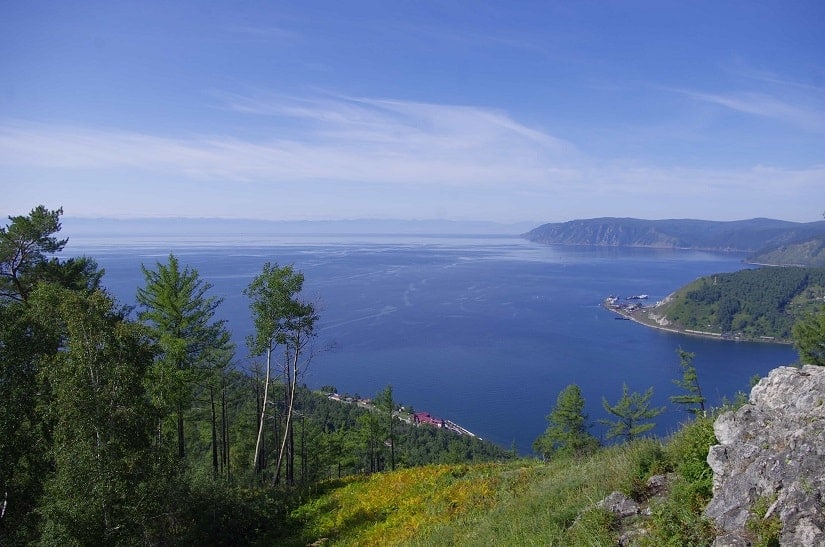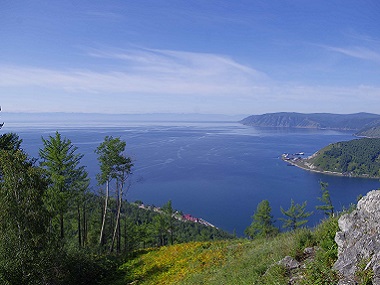By
Anson Mackay and
George Swann Lake Baikal, the world’s oldest, deepest lake, is feeling the temperature of human-induced climate change. Situated in southern Siberia, Baikal occupies one of the fastest warming regions on the planet and, as a result, the lake itself has
got warmer, seasonal ice is present for a shorter period of time and has got
thinner, and its waters have become
stratified for longer periods. These changes have already had an impact on the lake’s microscopic life, including
phytoplankton and zooplankton. Now, our new research has provided the first evidence that some of the lake’s unique microscopic plants are being
outcompeted by species not unique to the lake, most likely due to climate change. Although these ecological changes are so far confined to the south basin of Lake Baikal, they may act as an early warning signal of what might happen across the rest of the lake in the coming decades. History is preserved in mud To place modern ecological observations into a wider and longer-term perspective, we looked at the mud which accumulates at the bottom of the lake. This preserves an environmental history that, with careful collection and analyses, can be used to reveal changes in the lake’s ecology. We were especially interested in investigating long-term trends in a key group of organisms called diatoms. These tiny algae are invisible to the naked eye, being only a fifth of the breadth of human hair. Most of the energy in Lake Baikal’s food web ultimately comes from photosynthesis by these tiny diatoms. They are also especially useful in reconstructing long-term changes in the lake’s ecology because they have shells made of silica, the same material as glass, which allows their fossils to be preserved in the lake mud. [caption id=“attachment_5880451” align=“alignnone” width=“825”]
 Lake Baikal. Image via Wikimedia Commons[/caption] Some diatoms are more adaptable As with most plants and animals found in Baikal, these diatoms are mainly endemic – that is, they are found nowhere else in the world. Back in 2006, one of us (Anson) predicted that
climate change would lead to a decline in Baikal’s large, heavy, slow-growing, endemic diatom species, as they would quickly sink out of the photic zone as the lake became increasingly stratified. His work suggested that they would be replaced by smaller, lighter, faster growing species (both endemic and those found elsewhere), able to better tolerate more stratified water. In the current study, our colleague
Sarah Roberts set out to test this hypothesis as part of her PhD, by extracting “cores” from the mud at the bottom of the lake, to see what diatoms were like in previous years. Our findings were surprising. In the south of Lake Baikal our data showed that a significant change in the diatoms occurred at the very start of the 1970s, at the same time as the lake began to warm and ice thinned. As predicted, this change was manifested by a decline in diatoms with thick, heavy shells, alongside an increase in faster-growing species with lighter shells, such as Synedra acus, a species also found growing in many other lakes worldwide. What we didn’t expect was the decline in other lighter, endemic species such as Crateriportula inconspicua. When the heavy diatoms decline in abundance, dissolved silica needed to make their glass shells is now available for other diatoms to use. But because S. acus can tolerate higher water temperatures with fast growth rates, it quickly outcompetes the other smaller, endemic diatoms. Why this matters Why is this important? Climate change is already messing with ecosystems in other
large, ancient lakes, such as
Lake Tanganyika in East Africa. What happens to plankton has a knock on effect up the food web, causing fish to struggle and also, ultimately, those humans who
depend on the ecosystem for their livelihood. The increasing dominance by non-endemic diatom species in Lake Baikal has the potential to disrupt the lake’s own food web, through changes to the types of zooplankton and other fauna that feed on Baikal diatoms, which may ultimately impact on the endemic fish species that feed on the zooplankton communities themselves. Elsewhere in the lake, we are also seeing an increase in algal mats along the coastline, linked to
untreated sewage from coastal settlements. Interacting stressors from both nutrient enrichment along Lake Baikal’s coastline, and increasing surface water temperatures and stratification from climate change, could have untold consequences on biodiversity in one of the world’s unique ecosystems. Anson Mackay is Professor of Environmental Change,
UCL and
George Swann is Associate Professor in Palaeoclimatology,
University of Nottingham This article is republished from
The Conversation under a Creative Commons license. Read the
original article.
Situated in southern Siberia, Lake Baikal occupies one of the fastest warming regions on the planet
Advertisement
End of Article


)

)
)
)
)
)
)
)
)



